James Spader started his long acting career as a teenager in a minor role in the 1978 film Team-Mates, received his first big role as Brooke Shield’s brother in the 1981 film Endless Love, and has acted non-stop in a wide variety of film and television productions since 1984. For an actor with nearly 40 years of experience, who has starred in everything from teen gang films (Tuff Turf), made-for-TV family dramas (Cocaine: One Man’s Seduction), major blockbusters (Avengers: Age of Ultron), a hit legal drama show (Boston Legal), science-fiction romps (Supernova) and arthouse classics (Sex, Lies and Videotape), he has strangely eluded popular notice. In line with many similar actors who never found superstar status, he proudly remains a cult icon and a true actor’s actor, daringly picking obscure productions because of a great script or unique potential. “I like to be cast against type,” he told a reporter in 1987, “and I like directors who cast me against type. I like roles that are confusing to me, that have a lot of questions, questions which take the whole shoot to answer.” Now Spader’s starring role in the hit NBC show The Blacklist has brought him to the forefront of actors on TV and finally given people reason to re-evaluate his career. I’ve watched every film he has played in, and aim to pay homage to the notable classics and also uncover hidden gems by picking Spader’s best performances.
Spader is often characterized as a constantly type-casted actor, who took the same role over and over again, but this is largely unfair. As this list demonstrates, he took on a great variety of roles – but there are definitely returning patterns. In his review of Wolf (1994), Roger Ebert was already calling Spader’s character of a social-climbing, back-stabbing yuppie “the James Spader role”. Nikita Brottman, in her essay on Crash (1996), said Spader was the perfect actor for the film because he “represented blank yuppiedom par excellence”. Spader’s frail frame, good looks and blank stare just made him ideally suitable for such roles: he really did seem like a somewhat manipulative pretty boy, but one with enough charisma to get away with it. That kind of role initially made his career in the John Hughes film Pretty in Pink (1986), and whenever filmmakers needed someone to play an opportunistic rich man in an office environment, choosing Spader was all too easy – see his minor roles in Baby Boom (1987) and Wall Street (1987). He himself was not too fond of this characterization: “The word [yuppie] offends me,” he stated in 1989. “I don’t know what it’s meant to mean, and it’s not a suitable tag for what it’s meant to mean. I’m not sure who yuppies are, and I get defensive about it.” At heart there was a simple reason for this defensiveness: “It’s just strange,” he told an interviewer, “to have 10 years of one’s work categorized in one way.” Hopefully readers of this list will discover Spader is actually a multi-faceted actor. Spader always looked for the most interesting roles available to him at any time, and this eventually led to him often being cast as mysterious, eccentric characters, culminating in the massively popular The Blacklist. Let’s see how he got there.
Notes: In referencing the characters I rarely use the character’s names, and instead refer to the actor playing them. The character’s names are never truly relevant, and this keeps it neat and makes it clearer which character is portrayed by James Spader. Since the list focuses on James Spader’s performances, not all films on the list are actually good. Naturally, his best performances tend to appear in high quality films, but early on in the list there are many less effective films, which is made abundantly clear in the description.
- Tuff Turf (1985)
The Warriors (1979), a highly stylized film about gangs in New York City, popularized teen gang films, which dominated youth films for nearly a decade. Soon the exploitation classic Class of 1984 (1982) updated the “blackboard jungle” scenario (a high school being tormented by crime, drugs and violence) by involving a modern neonazi punk gang. The surprise success of those features resulted in several high school gang violence films, such as 3:15 (1986), Savage Streets (1984) and Tuff Turf (1985). But while the others were increasingly violent and exploitative, Tuff Turf was cleaner and leaner: highly stylized, it was more gloss than truly violent. It is closer to a musical than to an exploitation film, although it combines elements from both. Spader portrays a troubled teen whose formerly wealthy family moves to the suburbs after a bankruptcy, forcing the character to attend a dangerous inner city school. He is made out to be somewhat rebellious, seeking to define himself outside the boundaries of his upper middle class upbringing, but he also has some class and grace. While Spader is not given too much, the attempt to broaden his character in the script is duly appreciated, and Spader does all he can with it. His best friend is portrayed by a lovably young Robert Downey Jr., and his love interest is played by Kim Richards, who used the opportunity to get away from her precocious child actor image. She is clearly miscast, but amiable as the supposedly tough girl, with waist-length cripped hair to boot. Kim Richard’s character’s boyfriend and leader of the most fearsome local gang, played by a hammily psychotic Paul Mones, doesn’t like Spader for trying to steal his girl, and goes in. Violence ensues.
The outrageous 80s fashion and style make this film a ton of fun. Spader seems to have a blast with increasingly ridiculous scenes. The highly choreographed dance scenes for instance are very funny, and Spader has enough flair to make them work. At one point, Kim Richards lets Spader know she has started to appreciate him by doing a 5 minute long, highly sexualized, impromptu dance routine in the middle of a groovy bar, sliding over men and waving her hair all around – how else? Spader’s bemused reaction says enough. The vision of high school in the ‘80s is so hilarious it alone is worth the cost. It’s nearly impossible not to enjoy this film – a perfect start for a young actor’s promising career. A young Spader demonstrates he can create a believable character out of unbelievable material.
- The New Kids (1985)
Spader next played the antagonist himself: a creepy small-town Florida native who torments two innocent teens who come to live with their uncle after their parents pass away: Lori Loughlin (Full House’s Rebecca) and unknown actor Shannon Presby. The film, directed by Sean S. Cunningham, the master of thrills who directed the original Friday the Thirteenth (1980), isn’t entirely successful, but Spader carries the film, as he would do many more times in the future. Playing on the gang theme too, this time the locale is massively different than in most films of this type: instead of featuring inner city rockers and punks, the gang is mostly comprised of hillbillies. Only Spader’s charater, “Dutra”, stands out: he is clearly intelligent and devious. He is seen asking out Lori Loughlin, who is now working at an amusement park her crazy uncle has bought, thinking it a good investment. The adjacent gas station was included in the sale, and she runs over to help out Spader, driving a gigantic red van. Spader, who has a bet going with his pals over who can “pop her cherry” first, asks her out, but she declines politely. Then Spader asks again, less politely. Disgusted, she refuses, and says “You’re crazy”. Looking almost straight into the camera, Spader sinisterly says “You want crazy? Oh, I’ll show you crazy.” This line, simultaneously so ridiculous and potent, was in the trailer twice – and fair enough, because the film sure delivers on the crazy. It predictably ends with a bloodbath in the amusement park: appropriate for fans of the genre.
Spader, taking a unique role early on, made another minor hit. Spader humorously wears a different cowboy shirt every scene, and has enough charisma to convince you the crazed, coke-addicted guy he portrays could hold an entire school in fear. The sardonic tone in his sarcastic remarks, and the always blank stare of Spader helped to create one of the finest villains in films of this kind.
- Curtain Call / It All Came True (1998)
This is a minor film from later in Spader’s career with an inoffensive modesty of pretension. It was the last large film project of prolific director Peter Yates, a talented man who sought original and classy scripts and made many fans in the business due to it. While the renaming of the film clues you in on the lack of financial success, it does not lack star-power: Spader, who plays the inheritor of his parent’s publishing company, plays opposite of Polly Walker, and is haunted by ghosts played by Maggie Smith and Michael Caine. As Spader purchases the house, it becomes clear his girlfriend wants to marry him, but he is not ready, although he does not know why. As he sits in the house two ghosts reveal themselves, quarreling lovers who were once actors, and are given life by the extremely talented and well-versed Caine and Smith. Their lovable quarreling, which only Spader can hear, is funny in a gentle and restrained way. The reason this is a notable performance for Spader is because it most clearly displays his talent for comedy. While he was in a few other comedic roles, such as Mannequin (1987), Critical Care (1997) and Speaking of Sex (2001), those films were very slight and particularly hit-or-miss. Curtain Call gives Spader the warm company of a talented ensemble cast, and keeps his comedy more well-tuned because of it. He is lovably clumsy, and the whole tone of the film becomes all the more amiable for it.
Spader is not at all known for comedy and light-hearted characters, but here he proves he can do it in this lovely film, without making his comedic mannerisms overbearing and annoying.
- Keys to Tulsa (1996)
This film is, in a word, a fairly funny mess: a needlessly convoluted and overlong film that is hard to follow. Many reviewers admitted being somewhat confused by the film’s plot, yet once you understand the film, it becomes remarkably funny, if only occasionally because it is actually good. Eric Stoltz plays the son of a rich woman who is hopelessly unsuccessful in life. A deal with the local drugdealer, played by James Spader, forces him to assist him in blackmailing a politician who murdered the friend of a local stripper. The drugdealer’s girlfriend, played by Deborah Unger, happens to also be one of Stoltz’s past loves, and they have many flirtatious interactions, ,which leads to friction between Spader and Unger. What makes the film so enjoyable is how straightforward all the actors play this rather overwrought script. Michael Rooker, portraying the brother of Unger’s character, plays up the rich, cynical alcoholic archetype, and almost all scenes he is in are amusing. Spader joins him, strutting around like Elvis in this uncharacteristic role.
What Spader conveys so expertly is that there is something truly dangerous about the abusive drugdealer, but that he’s also somewhat dim-witted. In this role, he is frightening only on reflection, and initially seems like a put-on. This makes perfect sense for a character stuck in a situation hopelessly out of his control and out of his comfort zone. The trailer trash background and posing with Elvis-like swagger make for one of Spader’s most entertaining performances. He is also very good in interacting with Deborah Unger: for all its silliness, there is power in the display of an abusive marriage. Unger had played Spader’s wife before in Crash (1996), meaning the two were familiar in a way that seems very evident. This is the sort of film you should catch on television at midnight. When you do, Spader makes it a lot a joy every time he appears on screen.
- Storyville (1992)
This film is the ‘90s unspoiled: it plays out like one of those old video games featuring live-action footage, such as The Ripper, starring Christopher Walken. But while Walken used that hilarious script as an opportunity for endearing over-acting, Spader is of a different temperament, and always takes his work very serious, as he does here. His damaged yuppie character, about to be elected into congress, is involved in a murder, but escapes before the police arrive and then helps defend his lover, played by Joanne Whalley, from the charge of murder, by being her attorney – taking one more case before the election. In fact being elected into congress and being attorney in a murder trial is not all Spader’s character busies himself with: he also seeks to uncover his family secrets, wondering why his father committed suicide, and discovers a massive plot hidden by his evil uncle, played by Jason Robards, in an effort to obstruct Spader’s election to congress. There is also an evil cop, played by Michael Warren, who beats up Spader and tries to stop him every step of the way. The extremely convoluted plot is actually handled rather well, but in execution it never rises above merely okay.
This is another film most noteworthy for its funny cheesiness: it is full of 90s goodness. For instance, Spader is left a note by a waitress at the party which opens the film, telling him to come to an obscure club called Storyville, where, it turns out, they play the same simple electronic beat on endless loop. After meeting up there she takes Spader to an apartment building, where a vulgar man is taking erotic photographs of a woman in biker clothing. The power of this film is in spending unnecessary time and effort into all these kind of details: the photo studio is eerily well-designed and detailed, making the film a great period piece, full of early ‘90s decadence. Spader can’t stare for long though, as the girl takes him upstairs, to a fully designed dojo – on the third floor of an apartment building. First she beats him up, proving her worth in karate (“Is this your idea of foreplay?”), then they have sex in the hot tub – there’s also a hot tub. This is also secretly filmed by the girl’s father, who is later murdered, but the tapes could be damaging to Spader’s career or something, so he has to find who has it. – Look, the film is so filled with material it’s amazing you can make any sense out of it. But because of that Spader interacts with many great actors, among them the extraordinary Woody Strode, the western symbol legend and one-of-a-kind character actor. Most important is that Spader enjoys himself with all the lovely detail, but also puts on a great performance: unintentionally hilarious or not, Spader will always at least try to take it serious, and creates a convincing character in an otherwise overdone film.
- Bad Influence (1990)
In Bad Influence, Rob Lowe plays a tough and mysterious man with many underground connections. He saves Spader’s character from a thug in a bar and befriends him, showing Spader how to have a bit of fun. Spader’s character is stuck in a rut: while he has a beautiful girlfriend and a succesful career, he feels weak and uncertain about his future. Spader learns fast, but Lowe pushes it too far when he assaults a co-worker of Spader, and Spader tries to break up the friendship. Too bad – turns out Lowe is a crazy psychopath! A bad influence and then some. Some reviewers noted it would make far more sense for the roles to be switched: shouldn’t Spader play the devious psychopath? But really Spader is equally convincing as an innocent but bored yuppie who finds a bit of life with Lowe, then refuses to push it too far. The power struggle between the two that follows is not as explosive as some might hope, but there is much that is charming in all the extravagant set pieces of obscure techno parties and run-down bars that Lowe frequents, and Spader’s initial fear of these places is wonderfully executed.
This is at heart a simple film, which is given life by two great actors. It is hard to feel sorry for a man who has endless financial success and a clearly lovely girlfriend, but Spader sells us on the essential dullness and repression of the character’s current life, so his turn to the invigorating underground world of early ‘90s techno parties and crime and violence is utterly believable. He makes his character sympathetic, an absolute necessity but also difficult. This is another film that could have been way worse if not for Spader taking his role so seriously. His understated performance gives the film a neo-noir feeling that will excite the right audience.
- Wolf (1994)
Wolf is one of the strangest major Hollywood films ever made: an office drama that turns into a werewolf movie. It is unsure of its audience: neither those into office politics or werewolf horror will be fully satisfied, but the end product remains an intriguing curiosity, largely due to the central performances. Jack Nicholson plays the editor-in-chief of a big publishing house, which he intends to keep dignified and high-standing, but when it is taken over by a wealthy businessman, played by Christopher Plummer, he finds himself demoted. Nicholson’s protégé, played by James Spader, predicted the inevitable and “stole” his job by sucking up to Plummer. To make matters worse, Spader is also having an affair with his wife. Nicholson catches the two and bites Spader – because Nicholson also happens to be turning into a werewolf. Indeed, in the prologue to the film, Nicholson is bitten by a wolf, and because of it he finds himself slowly growing hair and turning more wolf-like. His newfound alpha wolf demeanor gets him into a relationship with Michelle Pfeiffer, who is the daughter of the wealthy tycoon.
While Nicholson is the star, Spader is given more screen-time when he also begins to turn into a wolf. The scene when this is first shown is arguably the best in the film: Spader tempers his voice and demeanor with just the right amount of creepiness, which makes the scene truly unsettling instead of merely funny. While the film is somewhat silly, Spader never drops his utter seriousness and commitment, and because of it he plays brilliantly opposite the aged star Nicholson. His performance here is both the reductio ad absurdum and perfection of the office social climber he is so known for. Whether in the end you laugh or cower, it was worth the price of admission.
- Less Than Zero (1987)
Less Than Zero, based on the novel by Brett Easton Ellis, stars Robert Downey Jr. as a coke-addict whose best friend, played by Andrew McCarthy, left for college a year ago. While McCarthy was out studying, Downey Jr’s character had a fling with his friend’s girlfriend, as shown in a flashback. Because of this McCarthy’s character has not seen his old flame and friend for half a year, when he is unexpectedly called up by his ex-girlfriend. It turns out Downey Jr.’s problems have gotten worse. He needs help. McCarthy comes over to find the LA scene the two old friends are stuck in is a decadent paradise of coke users and electronic dance music. While this film was too preachy for reviewers at the time, it is now a cult classic, largely because of two performances: those of Robert Downey Jr. in the lead, which has become particularly notable because of the star’s actual drug troubles later in life, and the brief role of James Spader as his drug-dealer. Spader is unbelievably scary as “Rip”, exactly because he isn’t all that immoral. He is slimy and pushy and suggests decadence, but is never unreasonable. McCarthy tries to push him away from Robert Downey Jr., but Jr. owes him thousands, and Spader will not be content until he has it back. Having had interactions with street dealers myself, I recognize Spader’s slick, eerie, semi-friendly behavior. You know there’s something wrong, but he’s just so good at hiding it, and is all the more menacing for it. When McCarthy threatens him for real, Spader tells the harsh truth: it’s already too late, and now all that’s left for Spader is to get what he can out of his client.
This incredibly painful viewing experience, a bit too preachy and not without its mistakes, still works because of powerful performances, and Spader’s is legendary. It’s hard to find a drug dealer played better on the silver screen.
- The Music of Chance (1993)
In this adaptation of the novel by Paul Auster, Spader is unrecognizable. The highly enigmatic story is about an ex-fireman (Mandy Patinkin) who picks up a mysterious man (James Spader) claiming to be a professional gambler. The gambler has a deal for Patinkin: fund him with 10,000 dollars and they’ll win millions of a poker game he set up with wealthy businessmen. Spader and Patinkin drive to the rich men’s mansion, but lose the poker game. They try again but eventually get stuck in debt, and are forced to build a wall in order to pay back the millionaires, made-up of stones from a castle originally belonging to Cromwell in the 15th century. Most of the film features Spader and Patinkin only, endlessly building a wall with the guidance of the foreman, played by M. Emmet Walsh. This is another film that would have fallen apart if not for incredibly performances by the two leads. Spader, with dyed hair and a heavy accent, is hard to identify initially. He finds a great deal of fun in this strange role, which could have been obnoxious but becomes likeable through his stellar acting. Patinkin plays off him very well as an always calm and stoic man. The two become friends in this odd, metaphysical tale, which is only for those who dare walk the strange paths of postmodern literature.
This is a wake-up call for those who think Spader always plays the same roles. A love-it or hate-it affair, the film again demonstrates Spader’s unique choices in film, and he excels in difficult material. Every slight mannerism is nothing like the Spader we are used to.
- 2 Days in the Valley (1996)
One of the joys of going through an actor’s entire filmography is that you end up finding films that could have been cult classics, but never found an audience due to a variety of reasons. I think 2 Days in the Valley is one of those films. While almost every critic compared it to Pulp Fiction, this comparison is somewhat unfair. It is a different type of film, far more comedic and sly. What they have in common is that they deal with an ensemble cast over a short span of time, and that crime is at the center. While not all actors are extraordinary – Teri Hatcher, who plays an athlete whose ex-husband is murdered next to her in bed, earned a golden raspberry nomination for worst actress – the piece is so well-written that every character is given a funny arc. Because the plot is so extensive, let us focus on Spader’s character. He plays a hitman, one with a little class and a great deal of sadistic and sardonic wit, but a professional at heart. When murdering victims he loves to take out an analog stopwatch and give the victims exactly 1 minute to beg for mercy. This precision is evident in all his action, so when his perfect murder plan is surprisingly ruined by a bullet-proof vest, he comes to clean up the loose ends, while his girlfriend – one of Charlize Theron’s most memorable early roles – has a catfight with Teri Hatcher.
Comparing this to the last film, it is notable how different Spader seems. From a lowlife, hot-tempered gambler to a classy, snobby, cold-blooded murderer, Spader excelled in each. He is especially well-cast here because his trademark yuppie exterior really aids the sneer of his character, and he is very charismatic in a dangerous way. This small gem of a film, a fun affair if nothing else, is worth to see for him alone.
- White Palace (1990)
In White Palace, Spader plays a wealthy Jewish man whose fiancé recently passed away. He is deeply mournful, but his recently married friend, played by Jason Alexander, says he’s pitying himself too much. His friends want to hook him up with a polite Jewish girl. Instead, Spader unexpectedly finds romance with a working class woman, played by Susan Sarandon, who is older than him and works at a local burger joint. White Palace is perhaps the only time Spader is outdone by the actor opposite to him: Susan Sarandon is so good in this film it is hard to fathom. Spader, however, plays a character who is by necessity somewhat restrained, and a victim of circumstances, so instead of a bravura performance he gives a lowkey, utterly believable turn as a damaged man who finds love in an unexpected place. This set-up, which reeks of Hollywood sentimentality, is saved by a generally solid script and the incredible performances. Stephanie Mansfield, writing a piece on Spader in 1999, reported that Spader said the part was “emotionally draining” and “difficult to walk away from”. Viewing it is often just as draining. Spader and Sarandon constantly clash even at home – Spader has to learn to appreciate that Sarandon is older, and often does nothing but sit at home and watch television. She has a hard time adapting to Spader’s social circle, who are unkind but not entirely unreasonable to her. You get the haunting sense that the relationship is simply impossible – that the ties to their existing social circles, and the differences in their upbringing, are simply too hard to overcome.
It is there that the film finds it mark, and becomes one of the finest, tragic romance film to have come out of Hollywood. Spader was well-cast because he subverts the expectations that his sex symbol status led him to – he never did a classic romantic comedy. Indeed, there is not that much comedy in this film, which has only two deeply hurt characters and their joy in finding love together.
- Pretty in Pink (1986)
Spader was lucky enough to stumble into interesting roles from the very outset of his career, and his third big film role is also one of the very best. Most of the early films have in common that they are highly flawed – mostly fun to see in retrospect. Pretty in Pink is arguably different: directed by John Hughes, teen movie idol, Pretty in Pink is a portrait of high school far removed from the teen gang movies in which Spader played before. Molly Ringwald stars as a precocious teenage girl, supporting her loser father, as her mother has passed away. Her unique sense of style is laughed at by many, but three men find themselves interested – Spader is one of them. While the drama culminates in a romance between Molly Ringwald and Spader’s best friend, played by Andrew McCarthy, the general anxiety and uneasiness of life as a teenager is the true center of the film.
Spader, however, has no part in that: he plays the arrogant yuppie “Steff”, who walks around school in an unbuttoned dress shirt with white pants while smoking in the halls. He also secretly likes Molly Ringwald, although his airheaded girlfriend ruthlessly mocks her. In one of his few scenes, he asks Molly Ringwald out – “You know, I’ve been out with a lot of girls at this school. I don’t see what makes you so different”. She responds: “Well, I have taste”, prompting Spader’s legendary response “You’re a biiitch”. The director of casting revealed in an interview that Spader was so detestable, so slimy, in his portrayal of the character, that he initially did not want to cast Spader. It was the director who convinced him it was good for the film: you’ve got to hate him. Funnily enough this did not truly work out either, because Spader’s enjoyably prissy character has received mostly love: one of the most watched videos of Spader is a compilation of nearly all his scenes in this movie. Many commenters said they wanted Spader to end up with Molly. So much for the message of the film! I admit myself that on rewatching it I cut to James Spader’s scenes, and was not disappointed. An early classic, and for a good reason.
- Secretary (2002)
A recent commenter noted that, while Spader is a great actor, there are few roles that are ideally suitable for him nowadays. The eccentricity of the characters that made him most famous is hard to come by nowadays: he refuses to fit into standard Hollywood archetypes. Secretary provided him with a truly perfect role: few critics could deny it, Spader really was the man for the job. In brief, Secretary is a film about a BDSM relationship. Yet unlike the famous 50 Shades novels and film, it is not about the titillation of it. It tries to convince the audience that a BDSM relationship can be perfectly healthy, an ideal outlet for two kindred spirits who merely have a somewhat odd fetish. If not played pitch-perfectly, this, then, could have turned into a horribly uncomfortable and laughable film – but it isn’t. Maggie Gyllenhaal plays a troubled girl who has just been released from a mental health hospital – she cuts herself. The deep pain of this character is portrayed with sympathy, but not with sentimentality. She finds a job as secretary to a mysterious lawyer, played by James Spader. His enigmatic character seems at once neurotic, shy, overly dominant and deeply troubled. This all makes sense once you discover the character is haunted by a fetish he is ashamed to enact. He is also clearly sympathetic to Gyllenhaal’s character, and far from forcing the BDSM on her, makes it, in a strange way, happen naturally.
This quirky film succeeds at being sprightly and fun in tone throughout, while also handling a serious topic with the solemnity required. Spader himself said it “is a very funny, sweet, lovely love story—very touching in a way.” There is hardly a better way to describe it. No better actors could be found for the job, and Spader’s multi-layered performance is one of his best.
- Crash (1996)
Crash, based on the extremely controversial novel by J.G. Ballard, is itself one of the most controversial films of all time. Director David Cronenberg, who was known to shock with sheer gore and body horror, finally moved towards a concept that was particularly shocking psychologically by adapting Crash. The novel upset even horror aficionado Cronenberg so much that he initially could not finish it, and had to take a months-long pause. That Spader was ready to jump right in displays his fearlessness in choosing roles. According to Cronenberg, Spader inquired over the phone who was cast in the female roles – “Cause I get to fuck them all, right?” At that point, said Cronenberg, he knew he’d found the right man. Spader clearly wasn’t afraid to shock and discomfort. Like in Keys to Tulsa, Spader and Deborah Unger portray a married couple, but this time they are yuppies with hopelessly empty lives. Their sex life is so stagnant that they resort to having sex with strangers, then report it to each other in an attempt to get it on. What finally liberates Spader from his repressed existence is being involved in a deadly car crash, in which another man is killed. He starts a relationship with the dead man’s wife, who was also in the car crash, played by Holly Hunter. Violence and sex, the key engines of entertainment culture, converge in the crashed car, a symbol of the marriage between human’s unconscious desires and their technological artifacts. Soon Holly Hunter introduces Spader to a group of people intoxicated by the perverse sexuality of the car crash, led by Elias Koteas, a mad prophet obsessed with photographing crashed cars to complete his enigmatic “project”. Spader’s difficult performance required him to have a full understanding of the novel. His character is profoundly empty, and so his emotionless gaze worked perfectly here. His reawakening in the car crash, and consequent embrace of violence, inherent to it as an unrestrained sexual stimulus, is disturbing yet never unbelievable.
J.G. Ballard, the author of the novel, was very happy with the film and the casting. He reports that the actors “were holding what were virtually seminars, analyzing the strange motivations of the characters and the whole background of the thing. They weren’t just playing the roles assigned to them.” This is true of Spader indeed. The most controversial scene of his career takes place in this film, and it is not for the faint of heart. Sex, having become meaningless, entered the next level with the invagination of wounds as new sexual organs: scars and wounds represented a confrontation with death, and consequently the human body may be said to be more attractive when it is defiled and disgraced. The final scene is equally powerful: it spells out what the novel didn’t, the unspoken culmination of these thoughts. That scene, filmed early in the shooting schedule and emotionally draining, was perhaps Spader’s finest hour. The whole performance is haunting and psychologically engaging like no other.
- Sex, Lies and Videotape (1989)
The intriguingly titled Sex, Lies and Videotape was the film that brought director Steven Soderbergh widespread attention for the first time. It won the Palme D’Or at the Cannes Film Festival, and is by now in American’s national film registry. It is the convergence of many elements made the film as powerful as it is. For one thing, it is the first which Soderbergh edited himself, and his unique choices in editing made it very sleek, modern and stylized in a way that massively benefitted the film. The performances are, of course, another. The film only really has 4 characters, and most of the film is made up of lengthy dialogue scenes. Crash is raunchy in theory and practice, but Sex, Lies and Videotape suggests that speaking, talking about sex is equally potent. Andie McDowell plays a woman who seems a little tired of life. She tells her therapist she can’t be bothered with sex anymore, but is otherwise in a healthy marriage. Her husband, played by Peter Gallagher, is fine with this, as long as he can have his secret affair with McDowell’s sister, played by Laura San Giocomo. Then James Spader’s character arrives, an old college friend of the husband, who has been mysteriously living in his car since college and has almost no belongings. McDowell’s character gets to know Spader through conversation and is intrigued by him. Spader, playing a character unlike any other he ever played, is mysterious and not very eloquent in the role – he plays a man who seems to have some deep understanding of humanity, a man who sees through people but cannot help himself. Later, McDowell discovers the eponymous videotapes: Spader’s character is (with their permission) recording women as they talk about their sex lives. He is practically impotent, unable to get an erection in front of others, yet determined to leave his past of compulsive lying behind him.
Spader has frequently played in films that sound completely ridiculous on paper. Wolf, Storyville, Crash, this film and others only function because of Spader’s pure dedication, his deep understanding of difficult scripts, and his excellent acting. “I didn’t have any different feeling about Graham in ‘sex’ than anyone else I’ve played,” Spader stated in a 1989 interview. “You have to embrace the soul of the man you’re playing. You have to accept his values as not only valid but reasonable, really. Otherwise you can’t play him with any conviction, which is the most important element.” His role in this film, certainly played with conviction, brought him much acclaim, and is, in a word, enchanting. There is hardly a false note in it: he created a uniquely modern character of a kind which has not really been challenged. I myself feel an especial connection to him here. While not even close to what has been dubbed “the James Spader role”, this is possibly his finest performance to date.
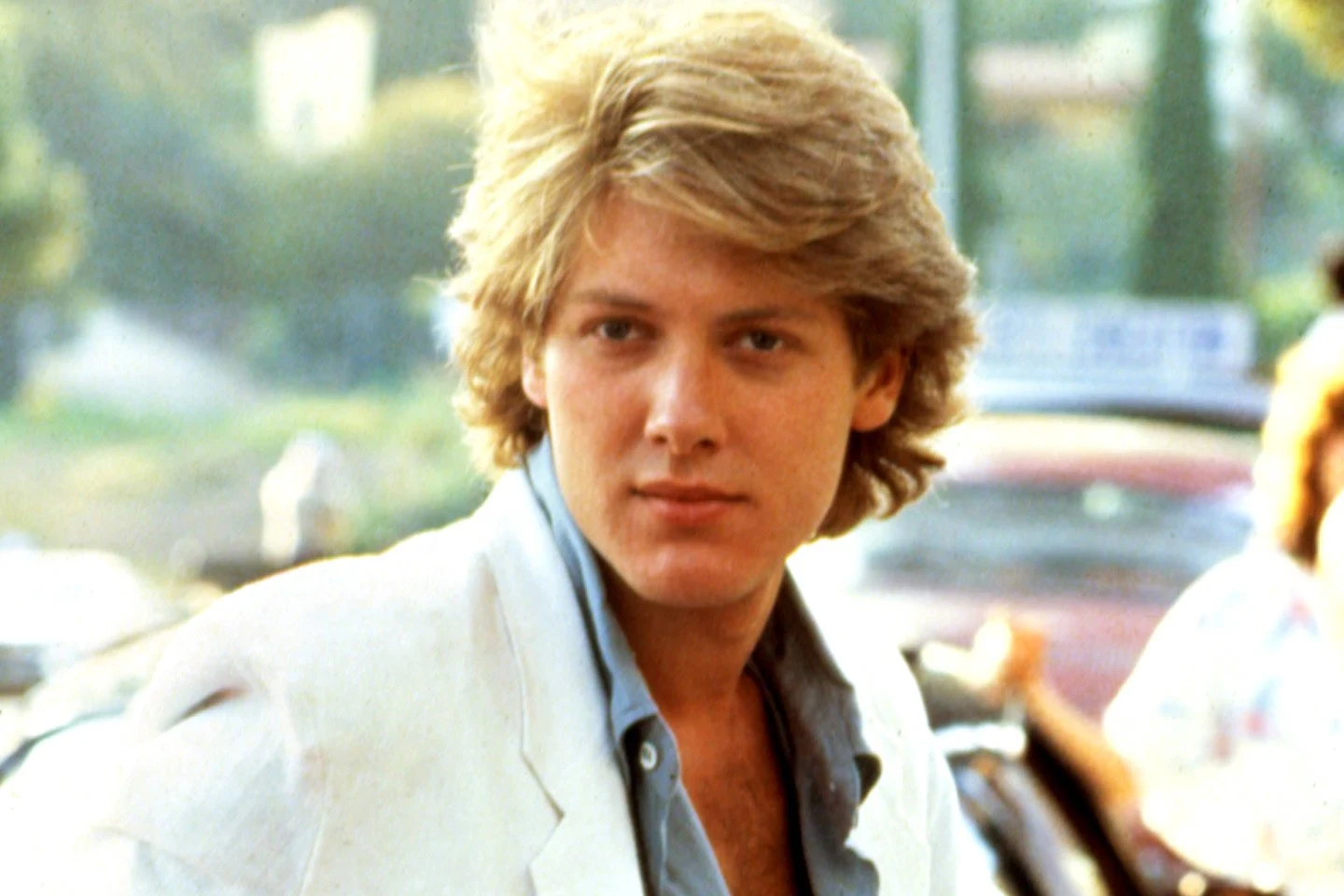
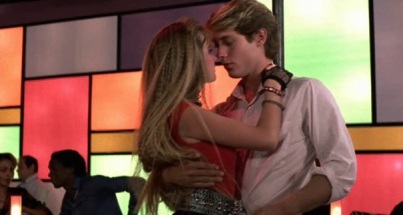
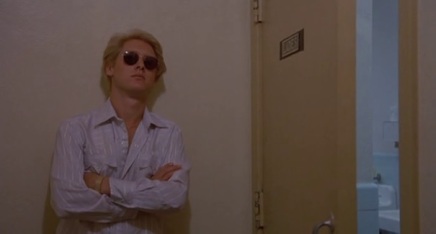
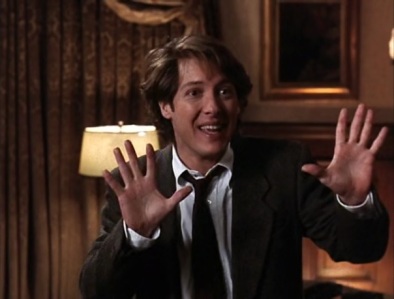
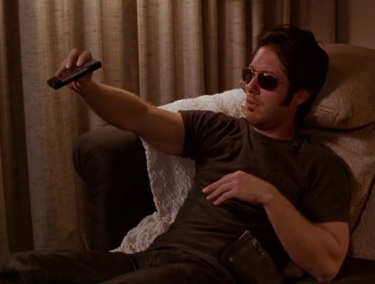
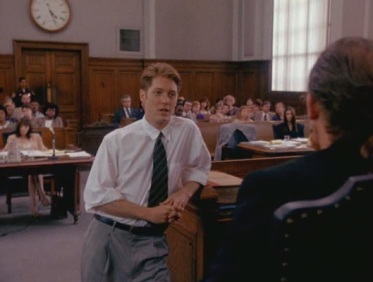
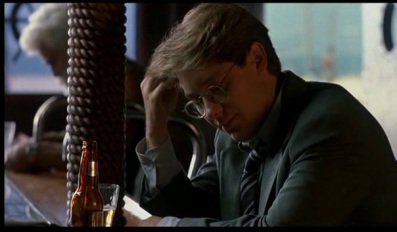
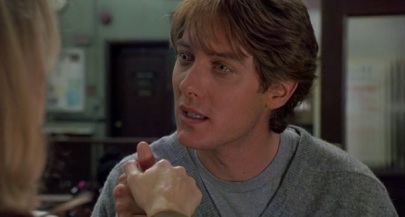
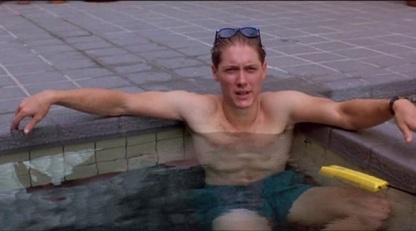
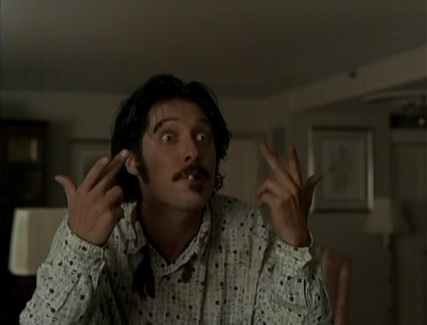
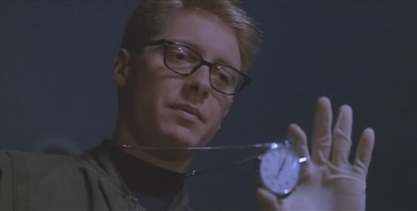
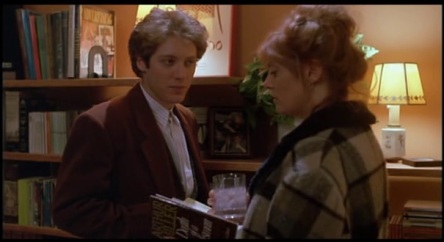
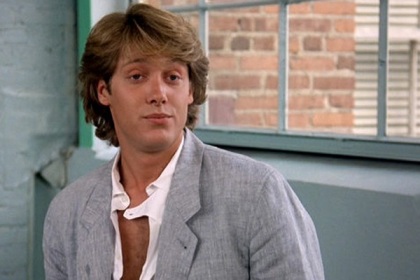
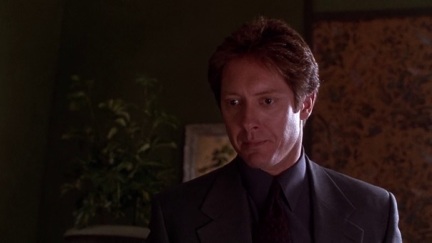
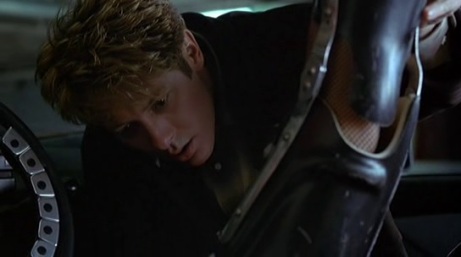
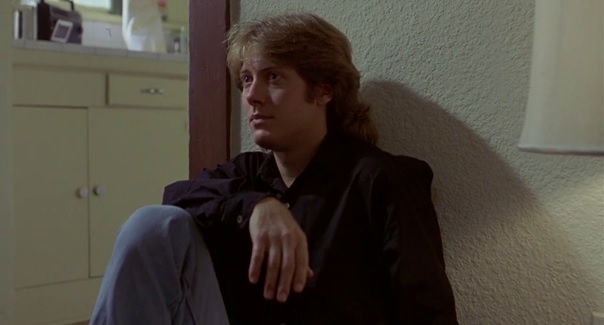

Thank you for a wonderful review of some of James Spader best performances. I probably would have changed two or three different ones in the slots, but this is a subjective list and those are your fifteen.
For me I would have added The Pentagon Papers, Lincoln, and Stargate. In return I would have removed Tuff Turf, Curtain Call, and possibly Keys to Tulsa. I also love The Stickup, but for this review would have left it off even though it is one of my very favorites.
Thanks again for a well written article…and he definitely doesn’t always play the same type of character!
PS…Howard Deutsch directed PiP. Hughs wrote it, but didn’t direct it. Deutsch is who didn’t want to hire Spader because he found him despicable. John Hughs is who told him Spader would be great in the role, and what he brought is what the role needed.